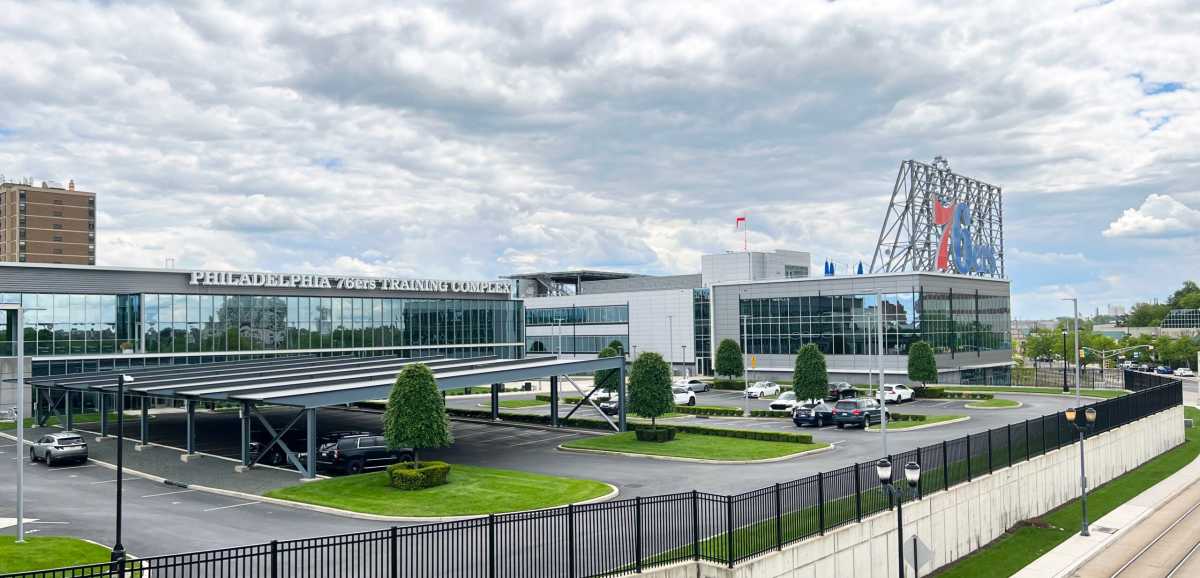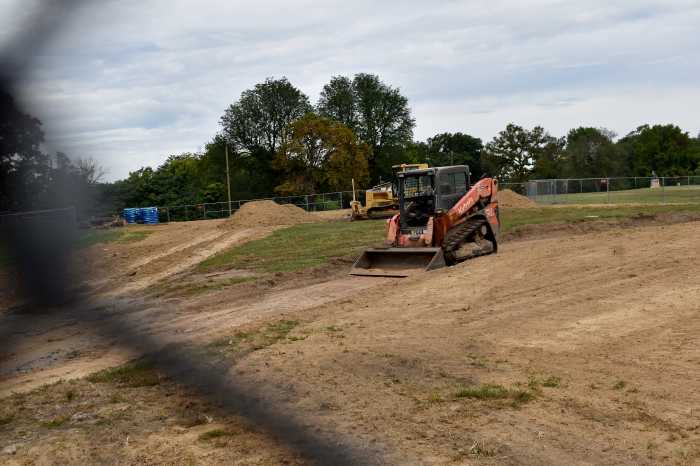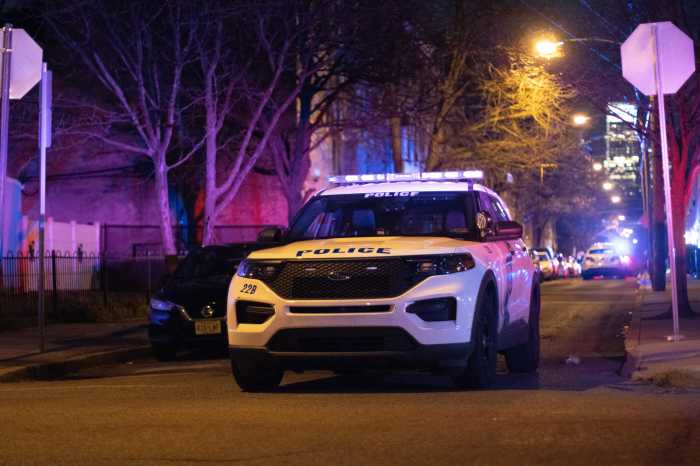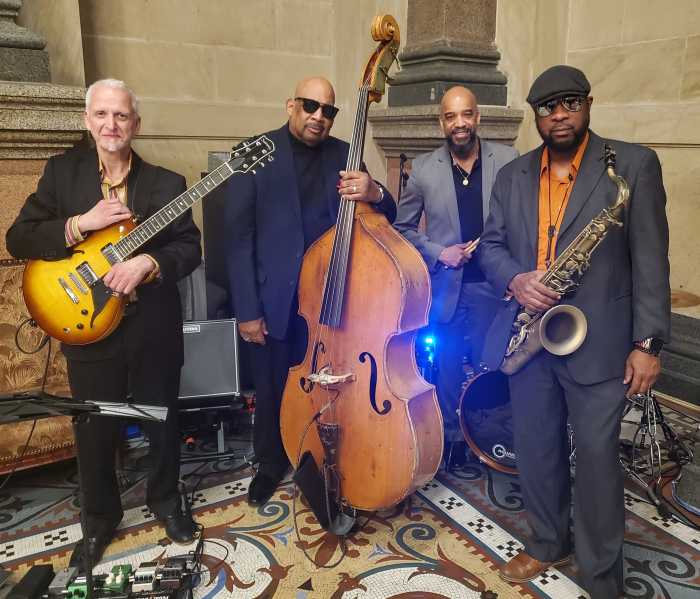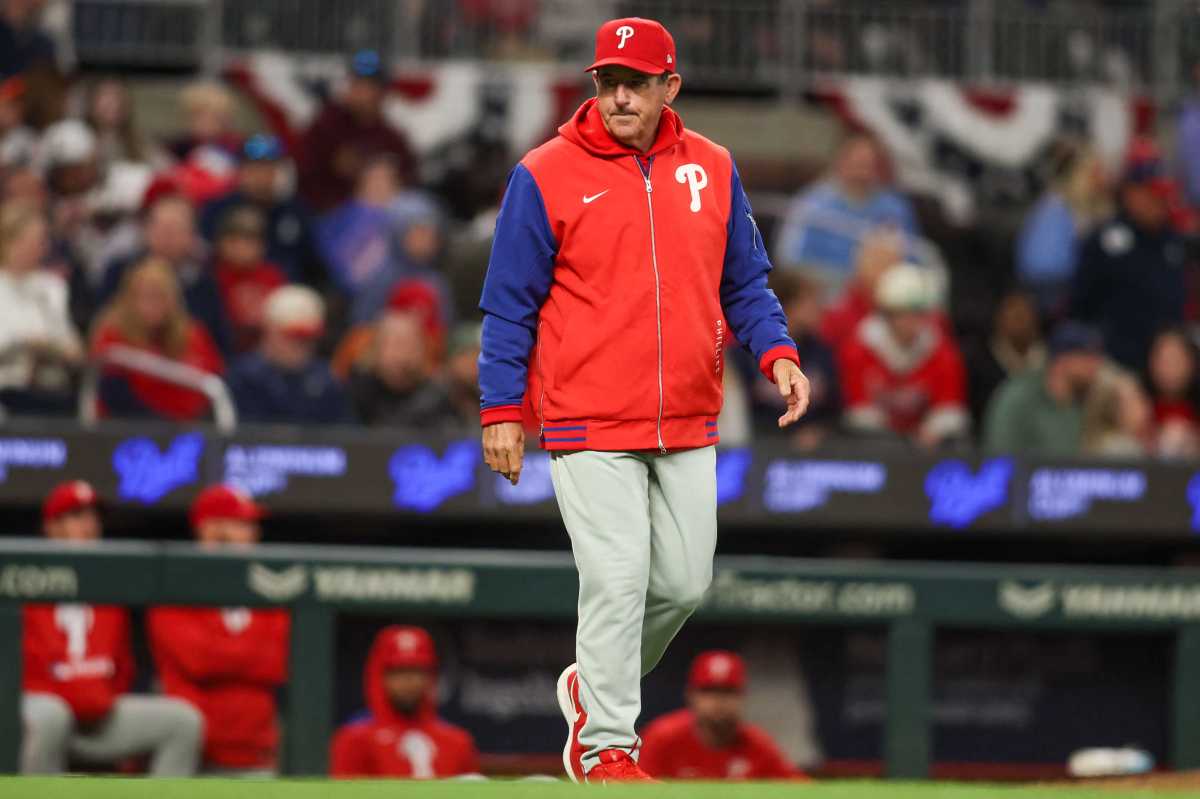As the Philadelphia 76ers move forward with a controversial proposal to build a $1.3 billion sports arena on Market Street only a block from Chinatown, critics ask what effect the new 18,500-person facility will have on the historic neighborhood.
But while Chinatown’s residents and advocacy groups question the negative impact on their community, they only have to look across the river to see what kind of neighbor the pro basketball team will be.
Sitting in Camden, New Jersey, on the waterfront, the Philadelphia 76ers Training Complex is a 125,000-square-foot steel and glass facility that houses a training center and the corporate offices of the Sixers.
Constructed in 2016 with $82 million in tax credits from New Jersey’s Economic Development Authority and the Grow NJ program, the facility was touted as a catalyst for job placement in a city with a 43% poverty rate. These tax credits were meant to spur city growth and create jobs, adding money into the local economy while presumably improving the immediate area around the business’ location.
Yet seven years later, the Philadelphia 76ers employed only 11 Camden residents out of its 275 employees. Pointing to a trend in the poorest city in New Jersey, the carmaker Subaru, which received a $118 million tax break in 2014, employs just 10 Camden residents out of its 786 employees. City data published in February reveals an overwhelming majority of employees at the city’s 30 biggest companies commute from other places.
Pedro Rodriguez, 48, has lived in Camden his whole life and wanted to see the team hire more locals. “It would help our community and provide opportunities for the youth,” Rodriguez said. “I know a lot of people in the hood and don’t know one person who works there.”
Tax breaks
While some corporations have no contractual obligation to hire local residents when moving to a new area – unlike the proposed arena on Market Street, the 76ers were not required to hire Camden residents for the practice facility – the ethical implications of not doing so can seem exploitative.
City officials can mandate that local workers are hired before handing out millions of dollars in tax breaks, but in 2016, New Jersey’s Economic Development Authority required no community benefit agreement for the Camden project, even though it’s one of the most impoverished cities in the US.
According to WHYY, after a recent jobs disclosure found that several large companies receiving tax breaks to move to the city barely hired full-time Camden residents, community members argued that elected officials should do more to hold employers accountable. In April, activists held a rally outside City Hall, urging major employers in the city to provide greater pathways to employment for Camden residents.
“I think there was a hope and a prayer that Camden residents would get jobs from all these incentives. We haven’t seen that,” said Antoinette Miles, political director for the New Jersey Working Families Party, to WHYY.
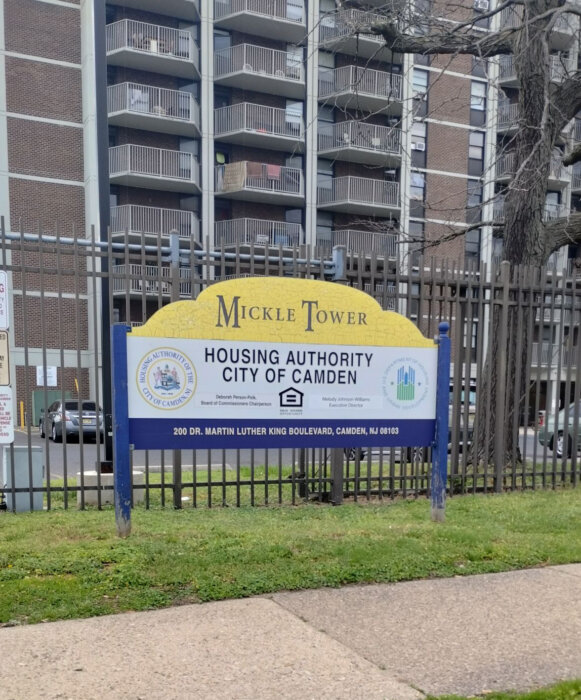
The Philadelphia 76ers Training Complex sits in the shadow of Mickle Towers, a low-income housing project next door. While the basketball players enjoy a state-of-the-art facility with massage tables, hot tubs, and professional chefs, their neighbors struggle with mental health issues, addiction, homelessness, and poverty.
One block away, blighted buildings and abandoned cars line Third Street, surrounded by nothing but a liquor store and a busy drug corner.
Leon P., a resident of Mickle Towers who asked to remain anonymous, agreed that a company should have some positive impact on the community it operates out of. “We don’t get nothing from them being here,” he said about the Sixers. “They could at least clean up the trash on the street near us and help out with all that money they saved moving here.”
Workforce development
The 76ers are very active in the community by way of outreach, and have participated in the Camden Cleanup, but the fact that nearby residents are not benefiting directly from the team’s relocation can take away from the work the organization does for the city.
After announcing the 76ers move to the waterfront in 2015, former Camden Mayor Dana Redd and former City Council President Frank Moran lauded the practice facility as a win for the city, stating that the relocation of the team to Camden would create a spill-over effect for small businesses in the area, according to the South Jersey Times.
But the ancillary economic effects of the team’s relocation, including possible retail and restaurant space that may open around the area, have yet to be seen. Additionally, the promise of jobs to Camden residents still goes unfulfilled.
Although the area around the practice facility is destitute, and the team does not hire many locals, former Mayor Redd, now CEO of Camden Community Partnerships, still recognizes the team’s efforts to provide community benefits by way of workforce development.
“The Sixers have given a multi-year, $450,000 grant to our Camden Works Initiative, which helps locals find work in and around the city,” Redd said. “And they’re always looking for ways to do more.”
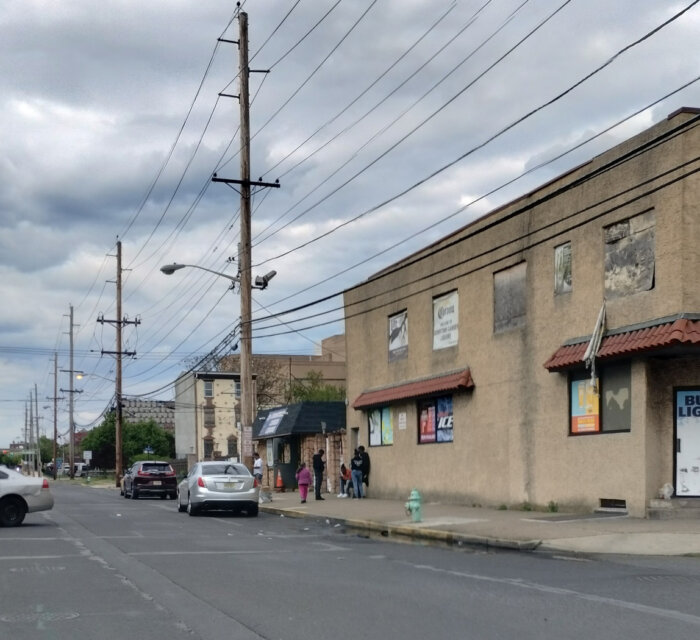
In response to questions over its hiring practices and community-mindedness, a spokesperson for the Philadelphia 76ers organization highlighted other initiatives put in place to help the community of Camden, including college scholarships for high school students and the mandatory 76 hours of community service required by every employee. However, when asked if the annual community service was completed in the city of Camden, the answer was ambiguous.
In an interview with the Gothamist, Molly Mita McEndy, the senior director of corporate communications for the 76ers, said that the team has also partnered with local leaders to create and support infrastructure programs to train, prepare, and connect Camden residents with stable, rewarding jobs.
“We will continue those efforts with a $1 million pledge to support vital community organizations such as Hopeworks and Urban Promise,” said McEndy.
There’s no doubt that the Philadelphia 76ers have done beneficial outreach with Camden community members over the years, especially with their youth programs and school support, but it remains to be seen what jobs will be created if they build a new arena near Chinatown. Officials claim to be adding over 1,000 permanent jobs to Philadelphia’s Fashion District with the new arena, and the NBA team has a community benefit agreement with the city to hire local residents.
But the past has shown that companies who take advantage of tax incentives and urban infrastructure do not always do what they say.
“I remember when the Sixers practice facility was first built and it was an exciting thing for Camden,” said Rutgers University student and Camden native Jaylynn Silva, 19. “They were saying it would bring job growth to our urban community, but the fact that a lot of people don’t even know the facility is here is proof that they haven’t done enough.”

Metro is one of more than 20 news organizations producing Broke in Philly, a collaborative reporting project on economic mobility. Read more at brokeinphilly.org or follow on Twitter at @BrokeInPhilly.



